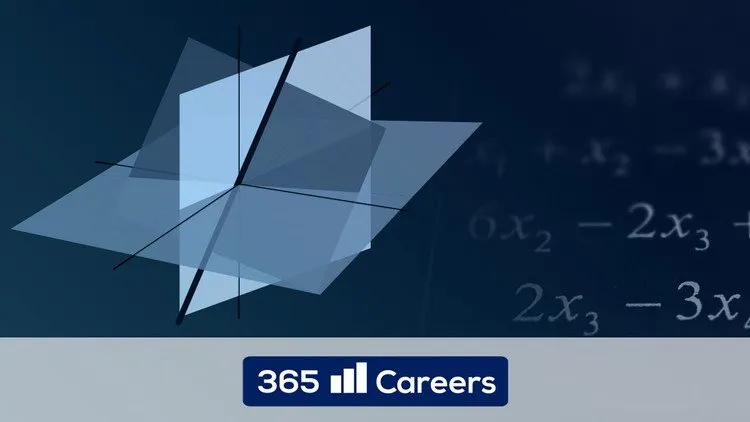Linear Algebra and Feature Selection in Python
Acquire the Theoretical and Practical Foundations That Would Allow You to Learn Machine Learning With Understanding

Linear Algebra and Feature Selection in Python udemy course
Acquire the Theoretical and Practical Foundations That Would Allow You to Learn Machine Learning With Understanding
What you'll learn:
Complete Bootcamp 2021 : Feature selection using Python
-
Feature Selection using Python machine learning packages Pandas, scikit-learn(sklearn), mlxtend
-
Learn the concept behind feature selection, detail discussion on feature selection method (filter, wrapper and embedded)
-
Filter methods selector like variance, F-Score, Mutual Information etc..
-
Wrapper Method : Exhaustive, Forward and Backward Selection
-
Embedded Method : Lasso Decision Tree, Random Forest, ExtraTree etc
-
Implemented with more than 15 Projects
-
Ready to use code in machine learning projects
-
Feature selection technique people used in Competitions.
Requirements:
-
Familiarity with Python programming
-
Working knowledge of Jupyter Notebook
-
Knowledge of Pandas and Numpy
-
Working Knowledge of Machine learning Model Creation using sklearn
-
Understanding of Statistical methods like chisquare test
Description:
Do you want to learn linear algebra?
You have come to the right place!
First and foremost, we want to congratulate you because you have realized the importance of obtaining this skill. Whether you want to pursue a career in data science, machine learning, data analysis, software engineering, or statistics, you will need to know how to apply linear algebra.
This course will allow you to become a professional who understands the math on which algorithms are built, rather than someone who applies them blindly without knowing what happens behind the scenes.
But let’s answer a pressing question you probably have at this point:
“What can I expect from this course and how it will help my professional development?”
In brief, we will provide you with the theoretical and practical foundations for two fundamental parts of data science and statistical analysis – linear algebra and dimensionality reduction.
Linear algebra is often overlooked in data science courses, despite being of paramount importance. Most instructors tend to focus on the practical application of specific frameworks rather than starting with the fundamentals, which leaves you with knowledge gaps and a lack of full understanding. In this course, we give you an opportunity to build a strong foundation that would allow you to grasp complex ML and AI topics.
The course starts by introducing basic algebra notions such as vectors, matrices, identity matrices, the linear span of vectors, and more. We’ll use them to solve practical linear equations, determine linear independence of a random set of vectors, and calculate eigenvectors and eigenvalues, all preparing you for the second part of our learning journey - dimensionality reduction.
The concept of dimensionality reduction is crucial in data science, statistical analysis, and machine learning. This isn’t surprising, as the ability to determine the important features in a dataset is essential - especially in today’s data-driven age when one must be able to work with very large datasets.
Imagine you have hundreds or even thousands of attributes in your data. Working with such complex information could lead to a variety of problems – slow training time, the possibility of multicollinearity, the curse of dimensionality, or even overfitting the training data.
Dimensionality reduction can help you avoid all these issues, by selecting the parts of the data which actually carry important information and disregarding the less impactful ones.
In this course, we’ll discuss two staple techniques for dimensionality reduction – Principal Components Analysis (PCA), and Linear Discriminant Analysis (LDA). These methods transform the data you work with and create new features that carry most of the variance related to a given dataset. First, you will learn the theory behind PCA and LDA. Then, going through two complete examples in Python, you will see how data transformation occurs in practice. For this purpose, you will get one step-by-step application of PCA and one of LDA. Finally, we will compare the two algorithms in terms of speed and accuracy.
We’ve put a lot of effort to make this course the perfect foundational training for anyone who wants to become a data analyst, data scientist, or machine learning engineer.
Who this course is for:
- Ideal for beginner data science and machine learning students
- Aspiring data analysts
- Aspiring data scientists
- Aspiring machine learning engineers
- People who want to level-up their career and add value to their company
- Anyone who wants to start a career in data science or machine learning
- The Absolute Beginners Guide to Cyber Security 2022 - Part 2
- Apache Kafka Series - Kafka Security | SSL SASL Kerberos ACL
- Learn AWS The Hard Way
- Complete, practical SDN and OpenFlow Fundamentals: over 8hrs Udemy
Course Details:
- 3 hours on-demand video
- 1 article
- 6 downloadable resources
- Access on mobile and TV
- Certificate of completion
Linear Algebra and Feature Selection in Python udemy free download
Acquire the Theoretical and Practical Foundations That Would Allow You to Learn Machine Learning With Understanding
Demo Link: https://www.udemy.com/course/linear-algebra-and-feature-selection-in-python/
